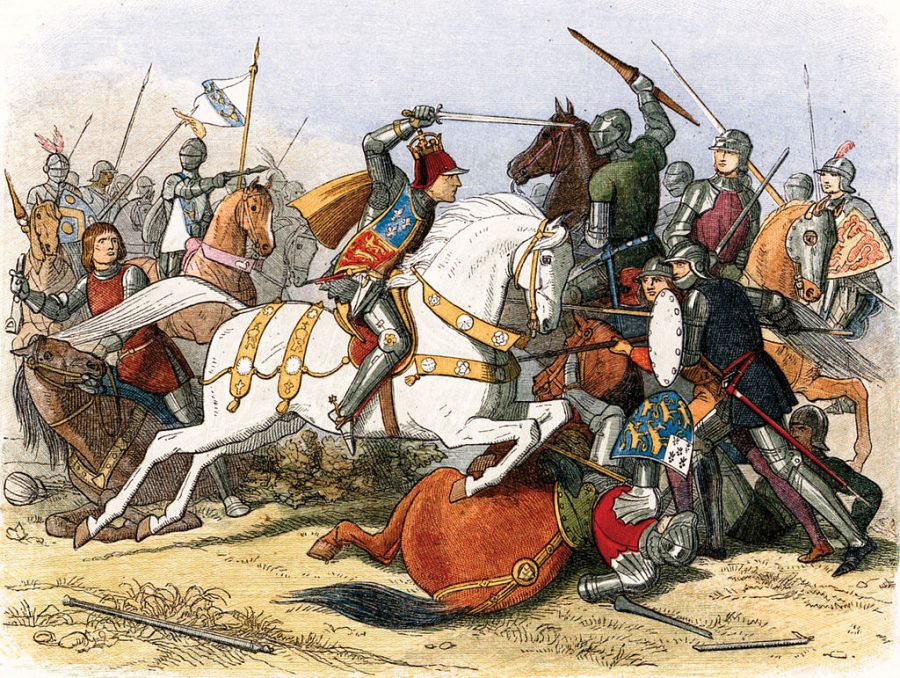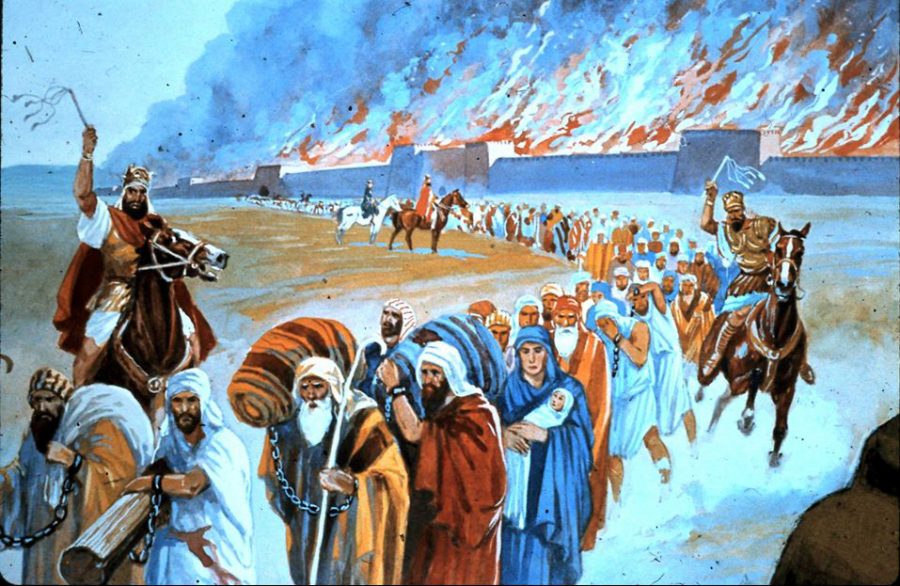Things don’t always go the way we think they will. In 1485 at the Battle of Bosworth Field between King Richard III and Henry Tudor during the War of the Roses, a third army showed up led by Henry’s father-in-law, Baron Thomas Stanley. It could have been reason for Henry to celebrate except Baron Stanley wasn’t overly confident the young Henry would win his first battle. Not wanting to back the loser, Stanley waited off to the side with his large contingent, until Henry was in grave danger and then suddenly charged in and helped give the inexperienced Tudor the victory.

I imagine for Richard and Henry it was a tense start to the battle with no idea if the army standing ready was for you or secretly against you. It’s not so different than life for all of us as we navigate through our failures. Standing before a holy God, we are unworthy; we don’t deserve His help and we can’t make it on our own. Yet here we are, made righteous by the God who charged into battle to defeat our enemy at the cost of His own life. And somehow we still find a way to consistently betray Him.
"Because judgment without mercy will be shown to anyone who has not been merciful. Mercy triumphs over judgment." James 2:13
Jesus is judgment and Jesus is mercy. For mercy to triumph over judgment, Jesus must resolve to defeat Himself. Yet, since Jesus is also mercy, He is still triumphant in His defeat. He is perfectly righteous, imperishable, just, and He never makes an error. Our destruction is deserved, yet He chooses empathy; He shows mercy; He pities us; and chooses to be compassionate.
Like Jesus, we must defeat ourselves. Many in the world around us deserve judgment and sometimes even hatred doesn’t feel like a strong enough response. But we can’t have it both ways. Either judgment is defeated for us and our foes, or mercy is defeated for us and our enemies. The prophet Jeremiah cried out for justice for forty years during the reigns of five different Judean kings until after the fall of Jerusalem.
Had the Jews listened to his pleas, the Book of Lamentations never would have been written. Jeremiah 34 describes the situation as his dire warnings were about to come to pass on the apostate city. “Nebuchadnezzar, king of Babylon and all his army and all the kingdoms and peoples in the empire he ruled were fighting against Jerusalem and all its surrounding towns…” Then, seemingly everything changed when King Zedekiah declared the Year of Jubilee and, “made a covenant with all the people in Jerusalem to proclaim freedom for the slaves.” If each of them cancelled all debts of their fellow Jews, “The Lord your God will bless you as he has promised, and you will lend to many nations but will borrow from none. You will rule over many nations but none will rule over you.”
Despite the judgment at the door which they truly deserved, God was going to show them the same mercy they showed to one another. The officials and people all recognized that they would soon be slaves or dead, and so they decided to show mercy and set their slaves free. Miraculously, as they released the debts of others, God instantly released their debts, and Nebuchadnezzar withdrew all of his armies. God’s response was to show Himself merciful to them, not allowing them to be taken as slaves. How monumental was this action on the part of Zedekiah? In over 800 years, since Israel first received the Law at Mount Sinai, there is no other definitive record of the nation observing the Year of Jubilee.

Shockingly, the story still ends with destruction, “But afterward they changed their minds and took back the slaves they had freed and enslaved them again.” What was God’s response to that turn of events? “So I now proclaim ‘freedom’ for you, declares the Lord – ‘freedom’ to fall by the sword, plague and famine. I will make you abhorrent to all the kingdoms of the earth.” What we know as the horror of anti-Semitism across the earth toward God’s chosen people is part of the judgment their betrayal released. Though He longs to cause mercy to triumph, we refuse to be merciful and so block its release.
It’s no coincidence that the first thing Jesus did to begin His ministry was to declare Jubilee, “He stood up to read, and the scroll of the prophet Isaiah was handed to him. Unrolling it, he found the place where it is written: “The Spirit of the Lord is on me, because he has anointed me to proclaim good news to the poor. He has sent me to proclaim freedom for the prisoners and recovery of sight for the blind, to set the oppressed free, to proclaim the year of the Lord’s favor…Today this scripture is fulfilled in your hearing.” Luke 4:18-21
Our country and the entire world seems bent on destroying itself by embracing wickedness, corruption, and betrayal. Many workplaces overflow with whispered innuendo. Too many marriages become burdens as expectations go unmet and the bondage of icy silent years replace joyful vows of hope. In our churches, we smile and greet strangers who never seem to find the vibrant connections they are longing for; youth groups often resemble the petty cliques that haunted our high school years. So, on every front mercy lies shattered and motionless. Still, like Zedekiah, we can choose to be on the cusp of an unseen revival.
“For though we walk in the flesh, we do not war according to the flesh. For the weapons of our warfare are not carnal but mighty in God for pulling down strongholds, casting down arguments and every high thing that exalts itself against the knowledge of God, bringing every thought into captivity to the obedience of Christ.” 2 Corinthians 10:3-5
"When having my portrait painted I don't want justice, I want mercy." - Billy Hughes
When we refuse to be merciful its usually because we feel justified due to a hurt or wound. Most of us have never been taught how to properly heal our wounds and find deliverance from the attack of the enemy. The process begins by dealing with Bitterness. When we fail to separate a person’s actions from those initiated by demons that are attacking that person, Bitterness takes root.
Unforgiveness springs from that root as we make and keep a list of offenses. Then comes Resentment as we meditate on the offense. Retaliation follows as we try to make sure that the offender regrets what they did. Soon the Fear and Unreal Expectations begin to spring up as we develop a manner of thinking that is based on deception. It’s not long till Anger arrives deep inside whispering, “I’m right to feel the way I do – I am justified to feel this way”.
Before long we start feeling Hatred toward the person. It’s the thought that this person has no reason to exist – they’re dead to you. Love has grown completely cold and hope for their good is long gone. Sometimes Violence reveals itself as we take actions to make sure they suffer “like you have suffered”. There are many kinds of Murder that don’t actually take a physical life but leave others “dead to you”. Once you decide that they don’t deserve to live in your world, it’s not that hard to act as if they don’t.
We need to be honest about all of our relationships. When we discover that our struggle is not against flesh and blood, we can embrace mercy, and sincerely release each other from judgment. Let’s choose to release debts, not because anyone is worthy, but because we are all desperately in need of His presence.
“For the word of God is alive and active. Sharper than any double-edged sword, it penetrates even to dividing soul and spirit, joints and marrow; it judges the thoughts and attitudes of the heart.” Hebrews 4:12



